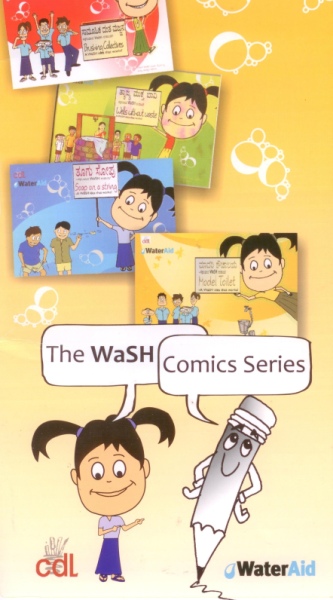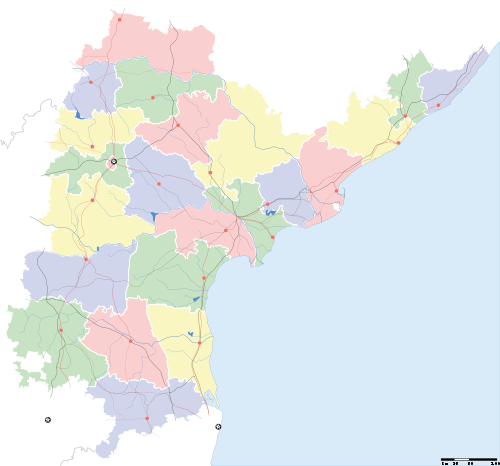Water Management
Water, climate change and adaptation: Focus on the Ganges river basin - A working paper by Challenge Program on Water and Food
Posted on 18 Aug, 2010 11:11 PMThis working paper by the Challenge Program for Water and Food explores the intersection between water management, climate change, and adaptation in the Ganges River system, a basin vital to the security, economy, and environment of South Asia.
Recognizing that an understanding of both the science and the policy of water management, climate change, and adaptation is rapidly evolving, it is not the intention of the paper to encompass all the issues related to these broad fields, but rather to provide a starting framework from which to further develop research questions and priorities for work in water and adaptation.
Impact of climate change on water resources and glacier melt and potential adaptations for Indian agriculture - A working paper by Challenge Program on Water and Food
Posted on 17 Aug, 2010 11:24 PMThe paper by the Challenge Program on Water and Food deals with the impact of climate change on water resources & glacier melt and potential adaptations in Indian agriculture. Global climatic changes will have major effects on precipitation, water availability, glacier/ice melt, and sea level rise. Climate-induced changes in hydrological conditions will affect the magnitude, frequency, and damage costs of future extreme events.
Is irrigation water free? A reality check in the Indo-Gangetic Basin – A working paper by the Challenge Program on Water and Food
Posted on 17 Aug, 2010 09:41 PMThe paper generated under the Challenge Program for Water and Food (CPWF) project explores in some depth a totally different dynamic in the irrigation economy of the vast Indo-Gangetic basin (IGB), an important exception to the global characterization. The global debate on ‘‘water as an economic good’’ presumes that irrigation water supply is delivered, controlled, and priced by public institutions. In the developing world, the price of water is kept so low that water use cost leaves farmers no incentive to use it efficiently.
Comics for a cause: The WaSH series
Posted on 17 Aug, 2010 05:54 PMComics for entertainment, mythology, science, values etc. are common, However comics for a cause is something that was unheard until now. On 14 August, a Bangalore based NGO CDL along with WaterAid India launched their comics for a cause called the WaSH (Water, Sanitation and Hygiene) series.
As they say a picture is worth a thousand words, some one also said a comic is worth a thousand pictures. Cartoons have proved to be the best method to penetrate into young minds and make them realize even complex problems, often these young minds revert back with never thought before solutions. This was the ideology behind the WaSH series. WaSH is something that has been created for the young minds and have come out of similar young minds. Yes, WaSH characters and stories are ideas of children from rural and urban poor areas.

Indo-Gangetic river basins: Summary situation analysis by Challenge Program on Water and Food
Posted on 16 Aug, 2010 07:37 PMThe paper by the Challenge Programme on Water and Food (CPWF) - Basin Focal Project provides a brief situation analysis related to water, agriculture & poverty, water resources, water productivity, institutional aspects and opportunities & risks related to the development of the Indo-Gangetic basin (IGB). Management of IGB water resources presents some formidable challenges and, therefore, steps must be taken towards integrated management of the IGB’s water and land resources in order to ensure the future sustainability of all production and ecosystems in the basin.
Simple water use accounting of Ganges basin - A working paper by Challenge Program on Water and Food
Posted on 16 Aug, 2010 05:50 PMThis paper deals with basin water use accounting and is a contribution to the synthesis work of the CGIAR Challenge Program on Water and Food (CPWF) Basin Focal Projects. It applies principles of water use accounts, developed in the first of the series to the Ganges river basin in South Asia. It provides a means to assess the interactions between water, food, poverty, and the environment and helps develop sound information about water availability in a basin, where it goes and how it is used.
Groundwater regulation under consideration for Andhra Pradesh
Posted on 16 Aug, 2010 05:01 PMThe legislation is likely to be in the form of an upgrade to the AP Water Land and Trees Act (WALTA).

Click here for the current Act
Attached are two working documents that are being used to frame the discussion for the new regulations.
PLEASE NOTE: These in no way represent final or official positions of the AP Government or other organisations and are not to be taken as such.
Water-use accounts in basins: Model concepts and description – A working paper by the Challenge Program on Water and Food
Posted on 16 Aug, 2010 12:18 PMThis paper deals with basin water use accounting and is a contribution to the synthesis work of the CGIAR Challenge Program on Water and Food's (CPWF) Basin Focal Projects. It provides a means to assess the interactions between water, food, poverty, and the environment and helps develop sound information about water availability in a basin, where it goes and how it is used.
Dams and development: A new framework for decision-making - A World Commission on Dams report
Posted on 15 Aug, 2010 01:51 PMThis report by the World Commission on Dams begins by arguing that the debate about dams is a much broader issue and is important for everyone since it is a debate about the very meaning, purpose and pathways for achieving development. It is complex because the issues are not confined to the design, construction and operation of dams themselves, but include a range of social, environmental and political choices that define development.
Dams fundamentally alter rivers and the use of a natural resource, frequently entailing a reallocation of benefits from local riparian users to new groups of beneficiaries at a regional or national level. At the heart of the dams debate are fundamental issues of equity, governance, justice and power. The report argues that the main challenge lies in reconciling the competing needs between different groups of actors and provides a framework to deal with these fundamental issues in the dam debate.
Increasing groundwater dependency and declining urban water quality – A comparative analysis of four South Indian cities
Posted on 15 Aug, 2010 07:18 AMThis paper by the Institute of Social and Economic Change (ISEC) examines the extent of groundwater dependency and quality status in four South Indian cities viz., Hubli, Dharwad, Belgaum and Kolar cities. Widespread water shortage problems have resulted in increased dependency on groundwater with tapping the resources to unsustainable levels. In Karnataka, out of 208 urban local bodies that come under Karnataka Urban Water Supply and Drainage Board, 41 depend on groundwater.







